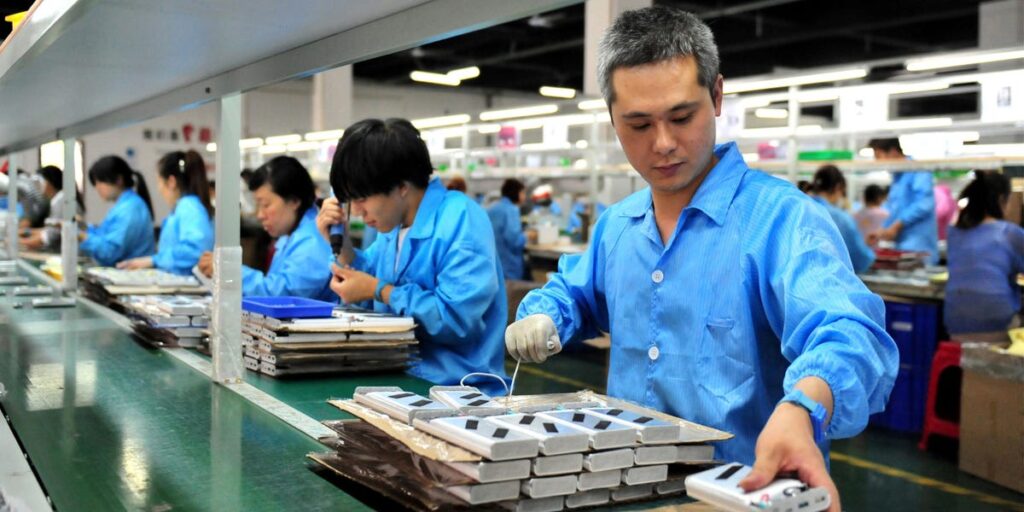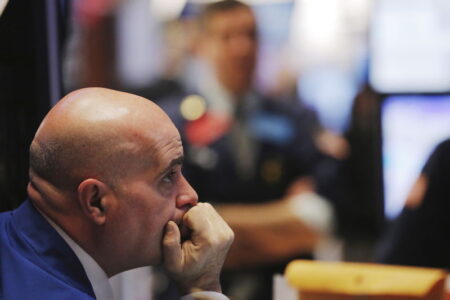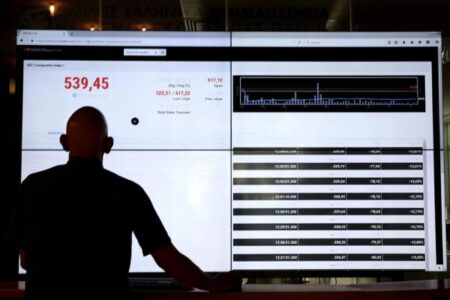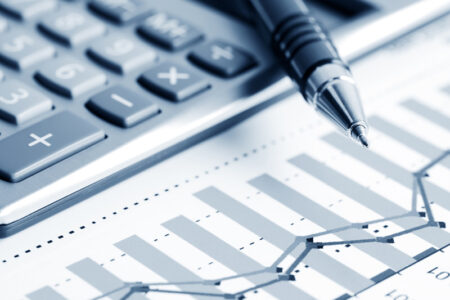- China published draft regulations for the battery industry and it wants to curb overproduction.
- That appears to be at odds with China’s official stance that there’s no industrial overproduction in the country.
- The West has been complaining about China’s overcapacity, but analysts say it doesn’t apply to all sectors.
The West has been complaining that China is overproducing goods and dumping them on the global markets. The comments have incurred the ire of Bejing, which has, as recently as Monday, denied the claims.
But on Wednesday, China’s Ministry of Industry and Information Technology issued a proposal that indicates Beijing may agree with some of the West’s accusations.
In its proposal, the ministry lays out plans to regulate the battery industry — which, alongside electric vehicles and solar cells, is a key pillar of growth in China’s economic transformation.
The proposal covers a range of issues, including minimum technical standards and ecological guidelines for battery production. Notably, however, it also states that lithium-ion manufacturers should avoid building factories that “simply expand production capacity.”
China’s battery production in 2023 alone was already big enough to fill global demand, according to an analysis from BloombergNEF.
The proposal illustrates China’s concerns about overcapacity — which it sees differently from the West, even if Chinese leader Xi Jinping’s administration is pushing back on the claims. It comes just as Xi wraps up his first trip to the European Union in five years.
China’s overcapacity problem doesn’t extend to all sectors
To be sure, the issue of overcapacity in China doesn’t extend to all sectors.
As a separate Bloomberg analysis found, the problem is mainly in areas where China already had the upper hand over the West, such as lower-tech goods and building materials after the country’s real-estate bust.
The country is also producing a vast oversupply of solar panels and batteries.
Analyses elsewhere also support Bloomberg’s findings that China’s factory production is not flooding global markets in every sector.
“We find emerging, but not overwhelming, macro proof to support the recent geopolitical narrative of excess Chinese goods production that unfairly undercuts global manufacturing competitors on price,” wrote Louise Loo, the lead economist at Oxford Economics, in a note on April 30.
Loo said cyclical oversupply is likely in the near term due to China’s economic woes, which have hit domestic demand, but it is not a persistent issue over time.
Still, this does not sit well with the West, which is trying to ramp up its own onshore battery capacity with government incentives in markets including the US, Canada, Europe, and India.
As Chim Lee, a China analyst at the Economist Intelligence Unit, wrote in a note on April 15, the “super-cycle” in strategic sectors — such as those of EVs and renewable equipment — is politically charged.
“These sectors are highly politicized globally: lower prices can be perceived as the result of government support, but they are also key to accelerating the green transition,” Lee wrote.
China’s global share of battery manufacturing capacity is expected to fall
Despite the West’s consternation, there is an upside for the bloc. China’s global share of battery manufacturing is expected to decline in the years ahead, according to a report from the International Energy Agency, or IEA, published on Monday.
China now accounts for more than 80% of battery manufacturing capacity, followed by the US and the EU with around 5% each, per the IEA.
However, China’s share of battery manufacturing could fall to around 60% by the end of the decade, while the US and EU could each triple their share to about 15% thanks to the Inflation Reduction Act and policies to support energy transition commitments, according to the IEA.
Read the full article here
















